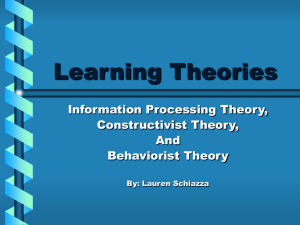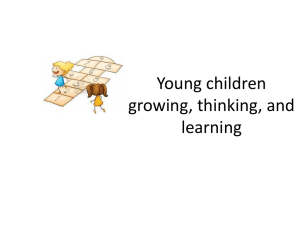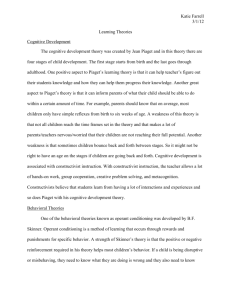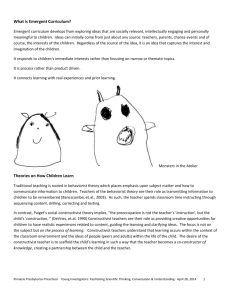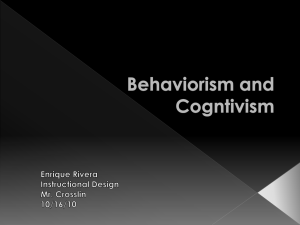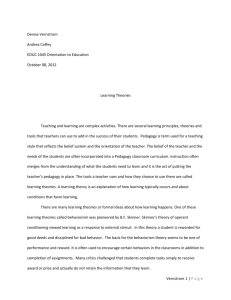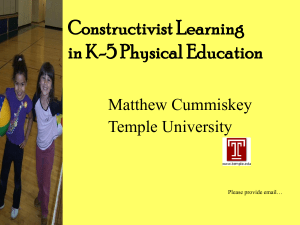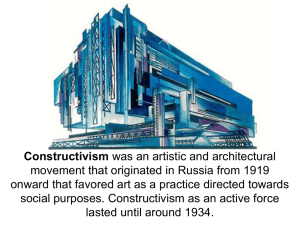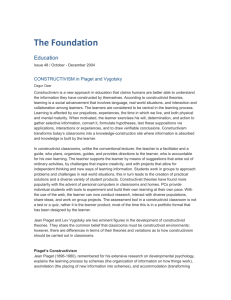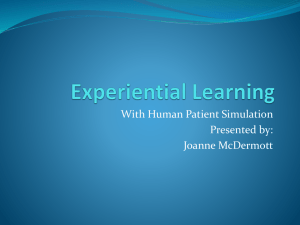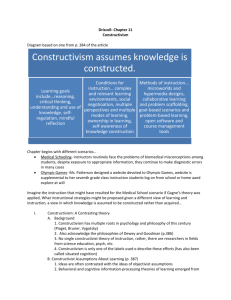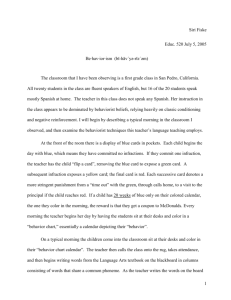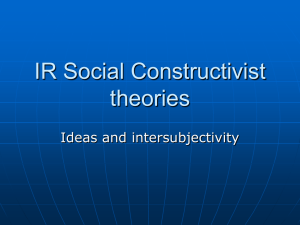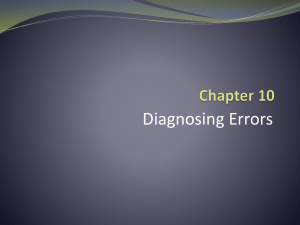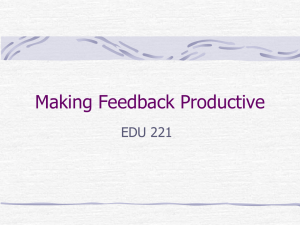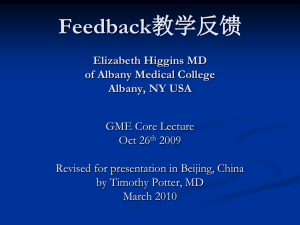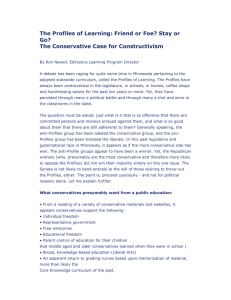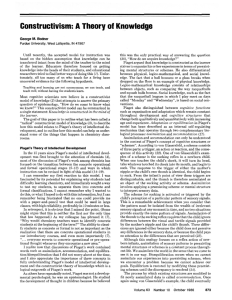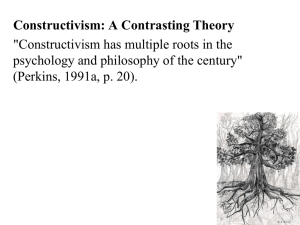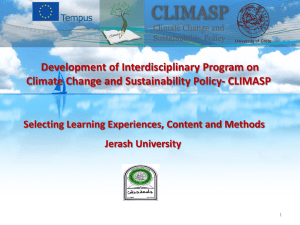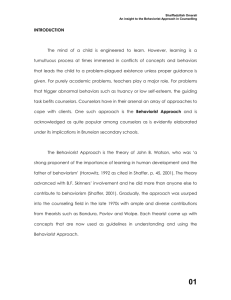Learning Theories and Adult Education
advertisement
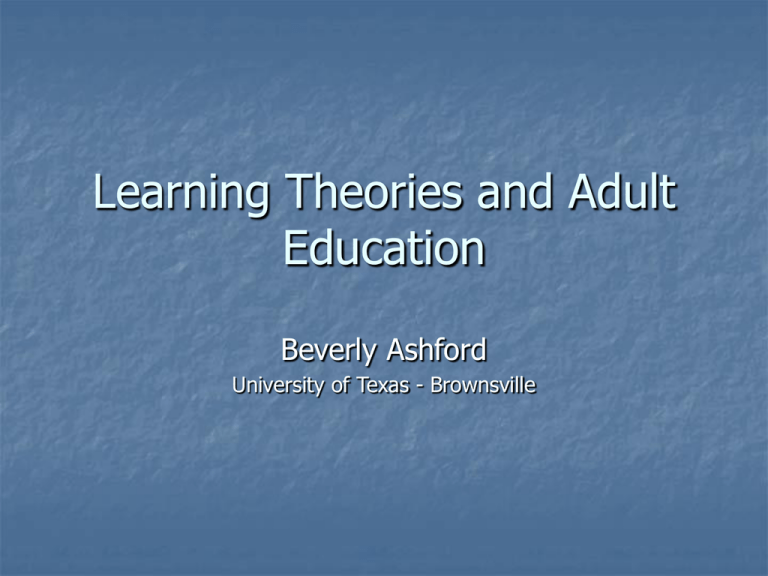
Learning Theories and Adult Education Beverly Ashford University of Texas - Brownsville Adult Learning Theories Adult learning theories encompass the basic concepts of behavioral change and experience. Up until the 1950’s basic definitions of learning were built around the idea of change in behavior. After this point more complexities were introduced “such as whether one needs to perform in order for learning to have occurred or whether all human behavior is learned.” Adult Learning Theories Behaviorist – Learning is a change in overt, observable behavior and is not concerned with internal processes. The course and content of learning are controlled by stimuli in the external environment, not by the individual learner. Constructivist – Learners interpret information and the world according to their personal reality. They learn by observation, processing, and interpretation, and then personalize the information into personal knowledge. Behaviorist Theory Behaviorist theory rests on the belief that all forms of behavior (including learning) are composed of simple stimulus-response events that can be seen and measured. More complex learning is the gradual building up of larger and more complex patterns of stimulus and response. According to Behaviorist theory, reward and punishment (whether grades, praise, monetary compensation or the loss thereof) form the basis of human learning. Behaviorism is referred to as “Stimulus-Response” learning which is derived from the work of B.F. Skinner’s operant conditioning theory. Operant Conditioning / B.F. Skinner The operant conditioning theory of B.F. Skinner is based upon the idea that learning is a function of change in overt behavior. Changes in behavior are the result of an individual’s response to events (stimuli) that occur in the environment. A response produces a consequence such as defining a word, hitting a ball, or solving a math problem. When a particular stimulus – response pattern is reinforced (rewarded), the individual is conditioned to respond. More complex learning is the gradual building up of larger and more complex patterns of stimulus and response. Operant Conditioning and the Adult Learner Because learning under the Behaviorist scenario is a form of behavior modification, the instructor’s responsibility is to construct an environment in which the correct behavior of the learner is reinforced. Information should be presented in small amounts so that responses can be reinforced. Testing is a matter of designing rewards for correct answers and objectifying results. Constructivist Theory Although Behaviorism has clear and undeniable applications in many learning experiences, it does not sufficiently explain the nuances of learning that are primarily self-paced and self-directed. Constructivist theories tell us that learning is an individualized process of “constructing “ knowledge. The theory proposes that knowledge and understanding are built up, step by step, through active involvement of the learner. Learning is a continual process in which the individual builds on previous knowledge, reconciles new information with old knowledge, and rearranges knowledge to gain new perspective. The theory of constructivism is generally attributed to Jean Piaget. Constructivist Theory / Jean Piaget Piaget suggested that through processes of accommodation and assimilation, individuals construct new knowledge from their experiences. When individuals assimilate, they incorporate the new experience into an already existing framework without changing the framework. This may occur when individuals’ experiences are aligned with their internal representations of the world, but they may occur as a failure to change a faulty understanding. When individual’s experiences contradict their internal representations, they may change their perceptions of the experiences to fit their internal representations. Constructivist Theory / Jean Piaget (cont) Accommodation is the process of reframing one’s mental representation of the external world to fit new experiences. Accommodation is the mechanism by which failure leads to learning. Acting on the expectation that the world operates in one way and it violates our expectations, we often fail, but by accommodating this new experience and reframing our model of the way the world works, we learn from the experience of failure, or others’ failure. Constructivism and the Adult Learner Learning is a continuing process in which the individual builds on previous knowledge, reconciles new information with old knowledge, and rearranges knowledge to gain new perspectives. Under the theory of constructivism, instructors focus on making connections between facts and fostering new understanding in learners. Instructors tailor their teaching strategies to learner responses and encourage students to analyze, interpret, and predict information. Impact on Adult Education/Training Programs Behaviorist viewpoints contribute to adult learning which involves simple declarative knowledge or objective response, but it does not explain very well how people acquire more complex knowledge such as problem solving and critical thinking skills. Behaviorist strategies can be used to teach the “what” or facts of the training. The constructivist theoretical point of view encourages learners to discover principles by themselves. Constructivist strategies can be used to teach the “why” of the training. Learners should be allowed to construct knowledge rather than being given knowledge through instruction. References Conway, J (1997, May). Educational Technology's Effect on Models of Instruction. Retrieved September 18,2008, from Educational Technology Web site: http://copland.udel.edu/~jconway/EDST666.htm Lara, V (2007). Professional Development Module: Learning Theory and the Adult Learner. Retrieved September 22, 2008, from Learning Theory Web site: http://www.texascollaborative.org/Learning_Theory.htm Mergel, B (1998, May). Instructional Design & Learning Theory. Retrieved September 18,2008, from Learning Theories of Instructional Design Web site: http://www.usak.ca/education/coursework/802papers/mergel/brenda.htm Smith, M (1999). Learning Theory. Retrieved September 17,2008, from The Encyclopedia of Informal Education Web site: http://www.infed.org/biblio/b-learn.htm
